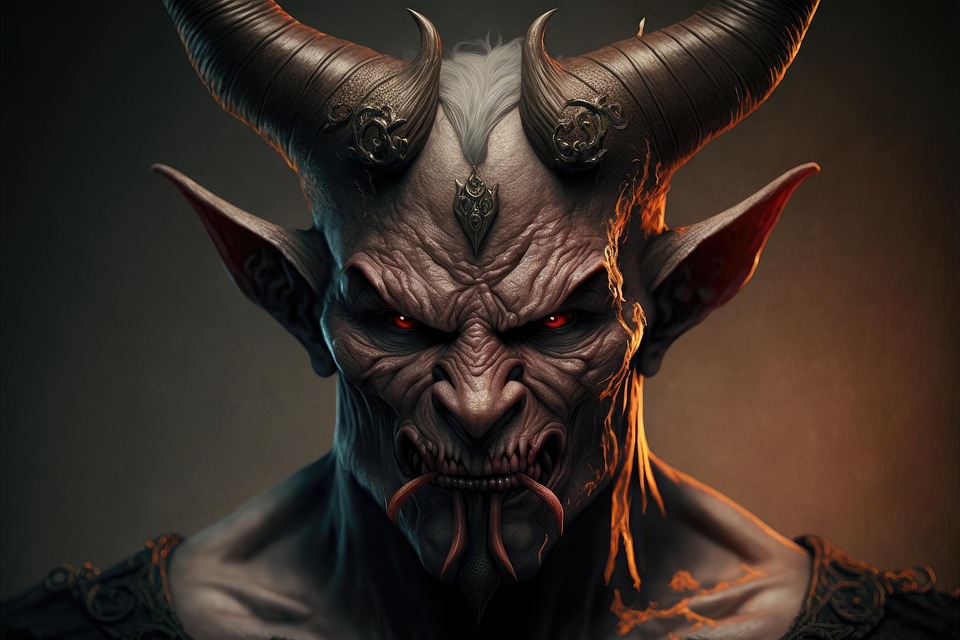The exploration of the Bahá’í teachings reveals profound layers of spiritual insight, particularly when contemplating the duality represented by the concepts of the devil and the angel. This juxtaposition invites a thoughtful examination of moral, ethical, and spiritual dimensions inherent in human experience. The phrase “The Devil in the Details, the Angel in the Patterns” offers a compelling lens through which one may investigate the complexities of existence, ultimately leading to a deeper understanding of the Bahá’í perspective on life.
To begin with, the “Devil in the Details” metaphor articulates a common observation: that minor imperfections can precipitate significant disruptions. This notion resonates throughout various realms of human undertaking, from the mundane aspects of daily life to the far-reaching consequences of moral decisions. The Bahá’í teachings stress the importance of individual responsibility, highlighting how the seemingly trivial can coalesce into critical turning points in one’s spiritual journey. The teachings underscore that vigilance in maintaining personal integrity and ethical standards is essential in navigating life’s complexities.
Moreover, the ensnarement in minute distractions can divert attention from the ultimate purpose of human existence. The Bahá’í Faith posits that life is not mere happenstance; rather, it is a precious opportunity for the soul to develop and progress spiritually. Thus, engaging with the details of one’s life—profuse with potential distractions—can, ironically, lead to spiritual stagnation. This perspective enjoins followers to cultivate a profound awareness of their thoughts, words, and deeds, ensuring that the pursuit of divine virtues continually takes precedence over the allure of worldly concerns.
Essentially, the “Devil” here symbolizes the myriad distractions and negative influences that can cloud one’s judgment or lead to immoral actions. This can be manifested through harmful habits, toxic relationships, or even societal structures that perpetuate inequity. In alignment with Bahá’í thought, these distractions are not merely external forces but often reside within the individual—fears, prejudices, and debilitating desires. Confronting these personal devils requires introspection, humility, and a willingness to embrace change. The teachings advocate a comprehensive approach to self-examination, urging adherents to engage in reflective practices that help unveil the roots of personal shortcomings.
Conversely, the notion of “The Angel in the Patterns” examines the overarching structures and divine principles that govern life, leading individuals towards higher truths and greater harmony. The Bahá’í Faith emphasizes the oneness of humanity and the interconnectedness of creation. By perceiving patterns in human interaction, social organization, and natural laws, one can discern a reflection of divine wisdom—a guiding “angel” that advocates for unity and peace. This perspective reveals a fundamental truth: while individuals may grapple with their internal devils, a greater cosmic order beckons them toward transcendence.
The patterns of human behavior, as viewed through a Bahá’í lens, embody the ideals of love, equity, and justice. These are the fundamental principles that, when adhered to, form the bedrock of a just society. The teachings emphasize that individuals have an inherent capacity to foster positive change in their communities. Engaging with these patterns allows for the cultivation of virtues such as compassion, service, and forgiveness, which are pivotal in the establishment of a harmonious world. Through community involvement and collective action, Bahá’ís strive to embody these angelic qualities, thus transforming their societal environments.
A critical aspect of recognizing the “angel” in patterns is the belief in the evolutionary aspect of the human spirit. Bahá’í teachings assert that the advancement of civilization is reflective of divine creativity manifesting through humanity. Progress unfolds through the application of justice, science, and spiritual insight. Recognizing these patterns encourages individuals to envision their roles within the larger tapestry of society, propelling them toward cooperative endeavors that uplift not only themselves but also their communities. Through this lens, each individual can discern their unique purpose, interwoven within the collective narrative of humanity.
However, the dialogue between the devil and the angel does not remain superficial; it is deeply interlaced with personal growth and self-actualization. The struggle against internal devils catalyzes the emergence of one’s highest self—wherein lies a profound inward journey. The Bahá’í Faith articulates that true fulfillment stems from seeking and aligning with divine attributes. The friction created between these dichotomies inevitably leads to transformational experiences, deepening one’s commitment to the principles of love and service embodied in the Bahá’í teachings.
Furthermore, this interplay reflects a crucial understanding of the nature of trials and tribulations. Adversities, often perceived as manifestations of the “devil,” can reveal latent resilience and fortitude. The Bahá’í perspective encourages individuals to embrace challenges as opportunities for learning and growth. Through this reframing, what appears as a devilish obstruction can, in essence, reveal unseen pathways—patterns leading toward divine purpose. This emboldens the individual to navigate through life with a sense of hope and a belief in the possibility of overcoming dissonance.
In conclusion, the Bahá’í teachings elucidate a rich tapestry of spiritual philosophy surrounding the dichotomy of the devil and the angel. This metaphorical exploration emboldens adherents to confront their inner devils, allowing the angelic presence within to inspire purposeful action. By acknowledging the intricacies and perils of everyday existence while remaining attuned to the higher patterns that guide humanity, one can forge a path of spiritual growth that is both transformative and enlightening. The Challenge of division, distraction, and despair is met with the call for unity and love, ensuring that every individual has the capacity to embody the angelic qualities that contribute to the flourishing of both the self and society.
